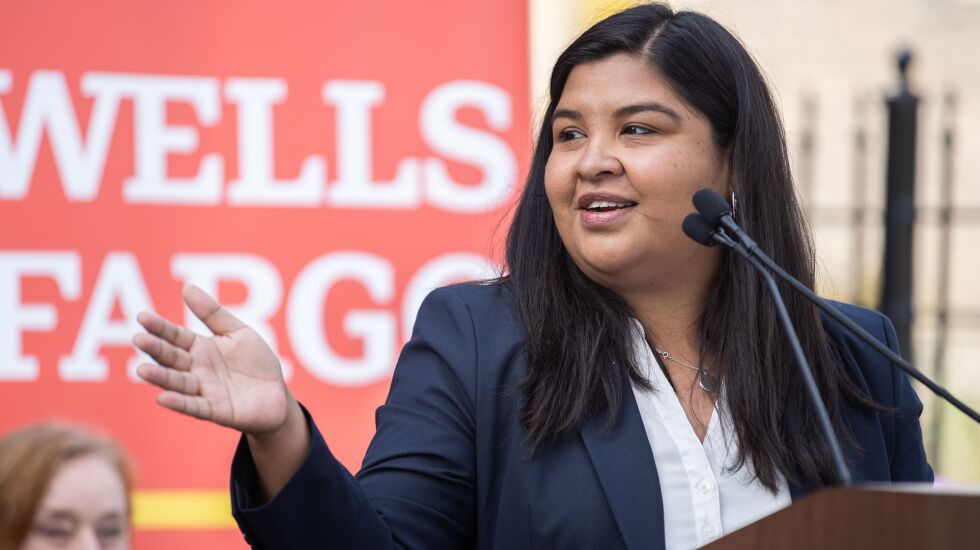
In his first proposed budget, Mayor Brandon Johnson is seeking to establish an environmental department at City Hall, though it’s initially a small staff expansion of an existing office that would not enforce pollution laws.
Unlike the former department shuttered by then-Mayor Rahm Emanuel in 2012 to save money, the new one would be more of a policy body initially, an expansion to 14 employees from an existing city office of 10, including Chief Sustainability Officer Angela Tovar.
Tovar — initially appointed by former Mayor Lori Lightfoot — worked on the specifics of the new department. Like Johnson, Lightfoot promised to bring back an environmental department but later said it wasn’t feasible.
Public Health will continue to inspect and cite polluters, though a city spokeswoman said Tovar would review “the regulatory and enforcement work that will be rolled into the [environmental] department over successive budgets.”
Tovar is the top city official working to reform discriminatory practices related to citing polluting industries in Black and Brown communities, under an agreement with federal officials.
After a federal civil rights investigation, Lightfoot signed a binding agreement with the U.S. Department of Housing and Urban Development this year to change planning, zoning and land use in Chicago. That investigation stemmed from a complaint over the proposed move of the General Iron metal-shredding operation from Lincoln Park to the Southeast Side.
The most important reforms at City Hall will come from policy changes and proposed changes in law promised by Johnson rather than a new city department, said Kim Wasserman, executive director of the Little Village Environmental Justice Organization.
“I’m very supportive of giving her new staff,” Wasserman said, referring to Tovar. But “policy change is needed. Otherwise, it’s just another cog in the machine.”
A 2019 analysis of city data found that environmental enforcement fell sharply after Emanuel cut the department.
A recent analysis of pollution enforcement by Anthony Moser, a member of the McKinley Park group Neighbors for Environmental Justice, found that businesses accused of violating pollution laws spend months fighting tickets in a process that sees fines reduced and serious charges dropped.
“Chicago routinely fails to enforce existing environmental laws,” Moser said. “What’s the point of bringing back the Department of Environment without any power or money?”
Johnson’s $16.6 billion 2024 city budget was presented to the City Council on Wednesday and also includes millions of dollars in spending toward climate-related initiatives.







